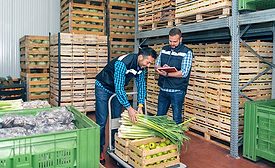Culture
Australia takes a uniquely collaborative approach to several aspects of food safety culture
Read More
The Inputs and Outputs of Vendor Certification Food Safety and Regulatory Requirements
Vendor certification is paramount for ensuring that companies are adhering to food safety and regulatory requirements
April 21, 2022
Using Lean Tools to Transform Your Food Safety Culture
Transforming food safety culture starts with the lean principles of respect for people and full engagement
February 16, 2022
Global Food Safety Culture: Europe
Four predominant features around food safety culture have been identified in European cultures
February 16, 2022
Introduction to Global Food Safety Culture
Unique regional cultures have influence on food safety, as will be explored in this article series.
December 21, 2021
Developing a Culture of Hygienic Design under the Smarter Food Safety Umbrella
The learnings of a storied career in food plant sanitation
October 18, 2021
How a Mature Food Safety Culture Can Prevent Foreign-Body Contamination
Whole-team engagement makes for a more thorough, effective result
August 22, 2021
The All-Too-Human Causes of Food Safety System Shortfalls
Moving from knowledge-based to behavior-based training might be key to culture change
August 12, 2021
Merging Food Safety and Operational Excellence
Combining the best of both food safety and operations
June 20, 2021
Never miss the latest news and trends driving the food safety industry
eNewsletter | Website | eMagazine
JOIN TODAY!Copyright ©2025. All Rights Reserved BNP Media.
Design, CMS, Hosting & Web Development :: ePublishing










